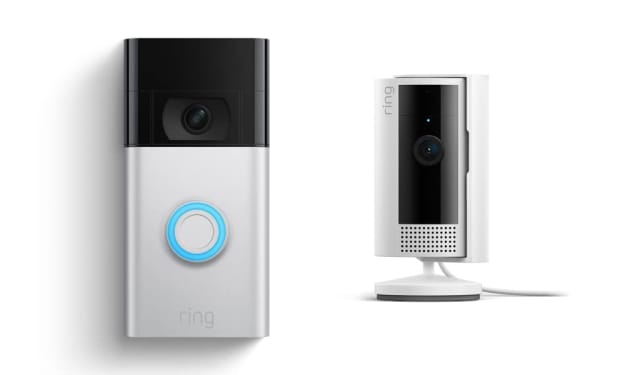
Have you ever been in a relationship that seemed to take you on an emotional roller coaster? You might be riding the thrills of love one minute and then falling into the depths of fear and uncertainty the next. Why is it that while some individuals appear to always be enmeshed in a drama storm, others make relationships seem like they are easy? My friends, the intriguing field of attachment styles has the solution.
I want to ask you something before we get started: Ever ponder why you respond in relationships the way you do. Why is it that certain individuals tend to press your buttons while others reassure and protect you? If you're anything like me, you've wondered these things more than once, particularly after a very confusing breakup or a furious disagreement.
I can still clearly recall my first actual experience with attachment types. Popcorn in hand, I was binge-watching my favorite romantic comedies while attempting to figure out why my love life seemed more like a sad drama than a happy one. Then, when I happened into an attachment theory piece, it was as if a lightbulb went out. All of a sudden, my relationships' bewildering patterns began to make sense.
The methods we use to create emotional ties and relationships with other people are basically what British psychologist John Bowlby called attachment styles. These tendencies may have a big impact on our adult relationships and are formed by our early contacts with carers. The four basic attachment types are avoidant, anxious, secure, and disordered. Let us dissect them and see if you can identify yourself or someone you know in any of these descriptions.
Starting with the "secure attachment style,". In the dating scene, stable attachment-type people are like unicorns. They are at ease in close quarters, trust readily, and strike a good balance between independence and intimacy. Congratulations if this attachment style is yours by chance! Comparatively speaking, you most likely have happier relationships and fewer emotional outbursts. You know that sensation you get when someone makes you feel like you can take on the world? Being firmly connected to someone is like that. But let me pose you a question: Is it feasible to becoming more secure if you're not already? (Warning: It is a spoiler!)
Next, we will discuss the anxious attachment style. Say you have a cat who is always afraid their person will abandon them. They might become needy and clingy, and are always looking for confirmation. Many times, those with an anxious attachment style feel unworthy of love and are afraid of being abandoned. They seem to be in a state of continual "Do you love me? Really, really, do you love me? I have to admit that I have spent a good deal of time in this camp, scrutinizing every conversation and agonizing over every text message. Has it ever seemed to you that the approval of others determines your happiness? In that case, your attachment style may be worrying. Still, do not panic! Changing anything starts with awareness.
There is also the "avoidant attachment style. They are the relational equivalent of lone wolves. They respect their independence and tend to retain their emotional distance to prevent being too close. They seem to be carrying around a "no trespassing" placard. Avoidant people typically battle with vulnerability and may come across as cold or emotionally distant. Imagine someone who, above all, values their independence and space and would much rather binge-watch a TV series by themselves than go on a date. Does someone you know or yourself sound like this? In such case, negotiating closeness might be challenging but not impossible.
Here we have the disorganized attachment style at last. Quite the wild card, this one. Anxious and avoidant behaviors are often combined in those with a disordered attachment style. They may battle closeness and trust in their relationships, which may be tumultuous. They seem to be caught in an ongoing struggle between seeking and dreading proximity. Many times, this approach results from painful or uneven childhood care. Have you ever thought that love and fear, push and pull, are all mixed together in a confused way in your relationships? Disorganized attachment styles are typified by that.
Let us now get a little intimate. I can attest that knowing your attachment type is like having a map to a previously unknown area, having sailed the turbulent waters of both anxious and avoidant attachment patterns. It helps you choose more carefully in your interactions and provides you with an understanding of your own actions.
When I became aware, for example, that my nervous attachment was causing me to look for approval all the time, I began practicing self-soothing methods and boosting my confidence. I gained the ability to more successfully express my demands without worrying about turning others off. And who would have thought? I had better connections! Though it was not a quick change, it was a positive start.
The following are some pointers that have helped me shift to a more secure attachment style:
1. Awareness: Identify your attachment style and know how it affects your actions.
2. Therapy: You may break free from your past and create better relationship habits with the aid of a qualified therapist.
3. Communication: It's important to be honest and open with your spouse about your wants and concerns.
4. Self-care: Developing a strong sense of value for oneself and engaging in self-care activities helps lessen the desire for approval from others.
Which attachment style are you in? Which are you, the nervous kitten, the lone wolf who avoids, or the chaotic wild card? Gaining knowledge about your attachment type is the first step toward happier, healthier relationships. Recall that the goal is to gain understanding that promotes development and closer relationships, not to label yourself or other people.
Improved relationships and self-discovery are like learning to dance. You may trip over a few toes at first, even your own, but you'll get into a rhythm with time and practice. And who is to say? Perhaps in the future, you will see that knowing your attachment type is essential to turning your love story from a sad drama into a touching romantic comedy.
About the Creator
KEN COLE
I WRITE TO HELP MAKE SENSE TO LIFE.






Comments
There are no comments for this story
Be the first to respond and start the conversation.